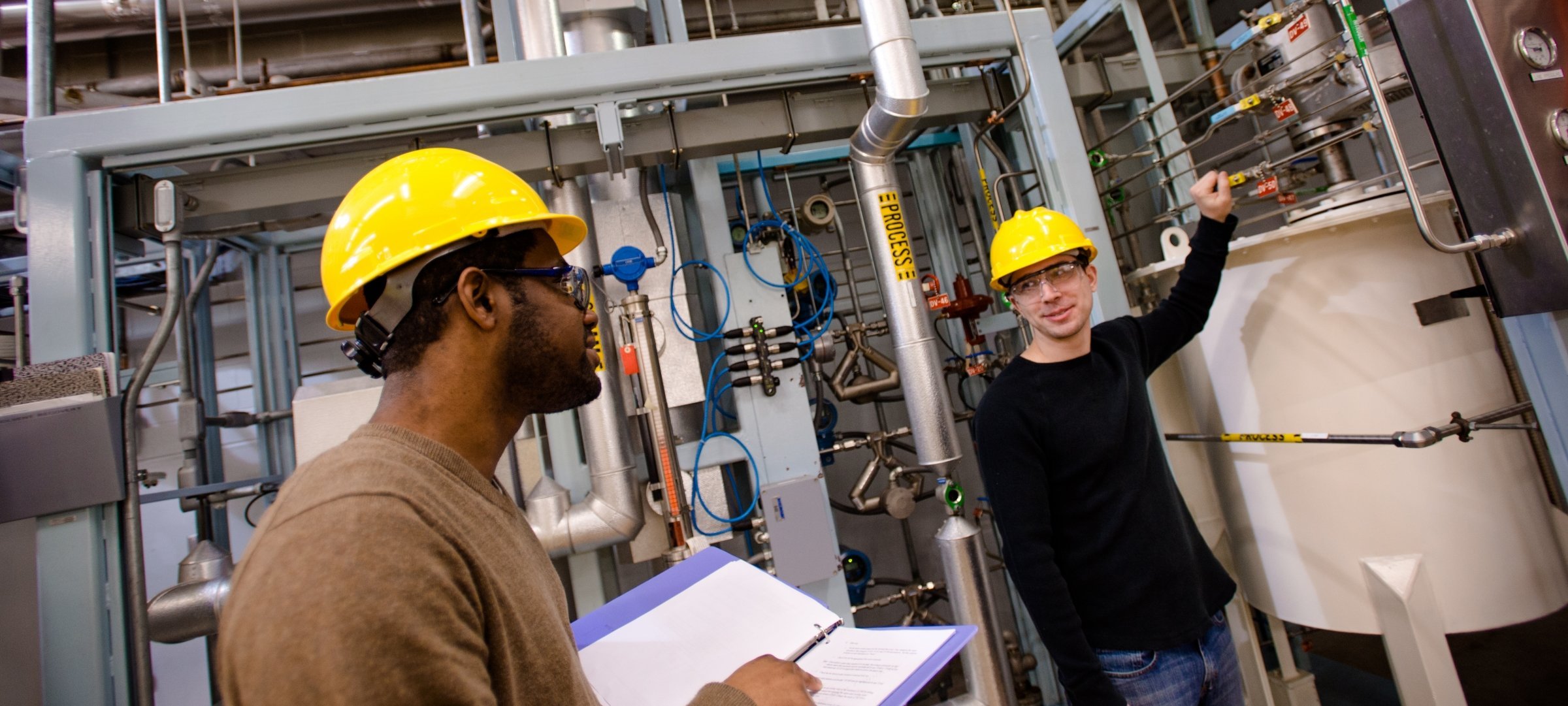Combine engineering and chemistry to make the world a better place. It will be the most rewarding decision you ever make.
Become an able and versatile engineer. Solve difficult problems for a wide range of industries. Chemical engineering is a universal degree. Countless fields rely on chemical engineers, from environmental to energy to medical.
Chemicals make up everything around us. Take your interests in engineering, math and chemistry to make a difference in our industries and world. Transform chemicals and raw materials into useful, valuable, and often lifesaving forms.
Request Information
Form loading . . .
The Department's Unit Operations Laboratory (UO Lab) is the best in the nation. Two pilot-plant set-ups and many bench-scale processes are available. Get experience using this process simulation and control facility. You will have the opportunity to learn in a real-world chemical-processing work environment. Get access to two fully automated pilot plants. Learn the operation behind a three-story distillation column and a two-story batch reactor.
Undergraduate research opportunities are plentiful. As early as your sophomore year, you can gain valuable experience. Work with a faculty mentor in diverse research thrust areas such as:
- Sustainable construction materials and resource recovery
- Alternative and renewable energy
- Bioprocessing and biomanufacturing
- Food, water, and air quality and security
- Medical sensors and diagnostics
- Pharmaceuticals and vaccine manufacturing
- Sustainable chemistry and manufacturing
- Advanced materials and polymers
- Waste recovery and recycling
Tomorrow Needs Versatile Chemical Engineers
Design processes that involve chemical or biological transformation. Work in large-scale manufacturing plants. Operate processes with safety, sustainability, and economics in mind.
You could also play an important role in protecting the environment. Invent cleaner technologies and calculate environmental impacts. Study the fates of chemicals in the natural world.
Chemical engineers make real changes that contribute to sustainability in society. They tackle big challenges, such as reducing our carbon footprint. You can help develop emerging technologies:
- Biofuels and alternative energy
- Engineered materials
- Hydrogen fuel cells
- Nanotechnology
- Drug and vaccine development
- Cleaner sources of energy
- Earth-friendly plastics
- Greener chemical processes
A chemical engineer's average starting salary is among the highest in the nation. Regional, national, and global corporations recruit our graduates. Our program has a 98-percent placement rate within six months of graduation. 90% of our students participate in a co-op, internship, or Enterprise project while they are here.
Engineering Enterprise Concentration
You can pursue an Enterprise concentration by taking part in Michigan Tech's award-winning Enterprise program. It's a great way to enhance your undergraduate degree. Enterprise is when students work in teams on real projects, with real clients, in an environment that's more like a business than a classroom. Choose from among 25 Enterprise teams on campus to invent products, provide services, and pioneer solutions. Tackle real-world design projects for industry sponsors or take part in a national competition (or both). This concentration can add courses in business and entrepreneurship.
Be Career-Ready
Explore career opportunities for chemical engineers.
Graduate with a bachelor's degree in chemical engineering from Michigan Tech. You will be well prepared to transition to an entry-level job in industry. Our degree provides excellent preparation for graduate school. An advanced degree is desirable for work in academia, research, medical school, or advanced industry.
- Chemical production or manufacturing
- Mineral processing and mining
- Pharmaceuticals
- Biotechnology and bioprocessing
- Sustainable engineering
- Food production
- Consumer goods
- Alternative energy
- Process safety
- Environmental cleanup
- Design engineering
- Consulting
- Medical school
- Law school



